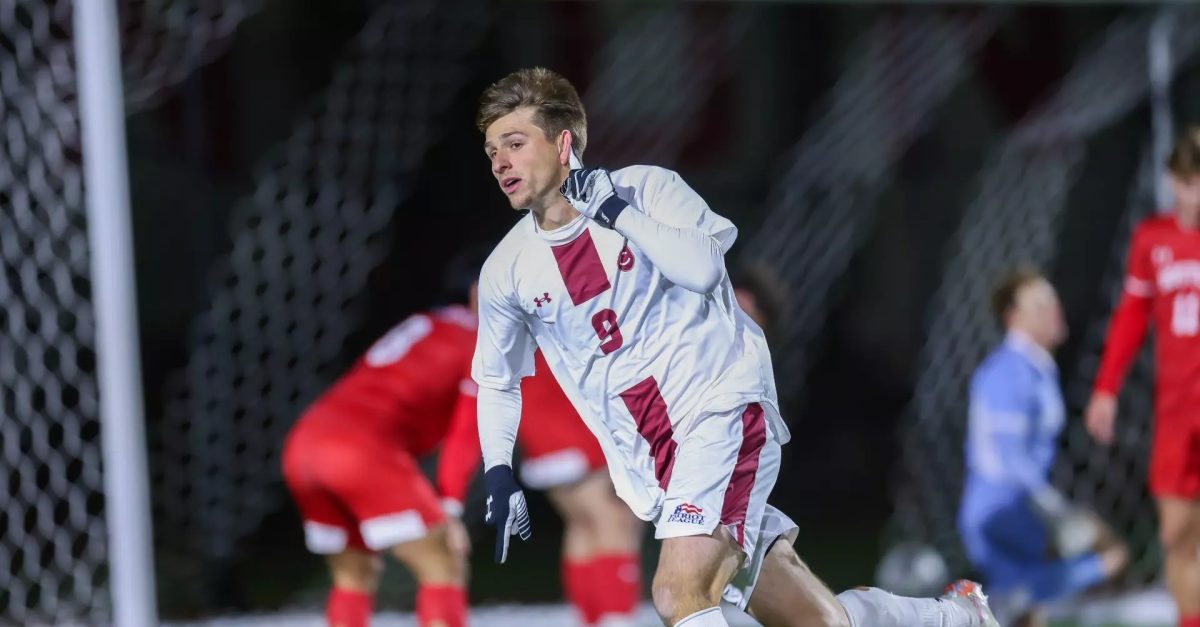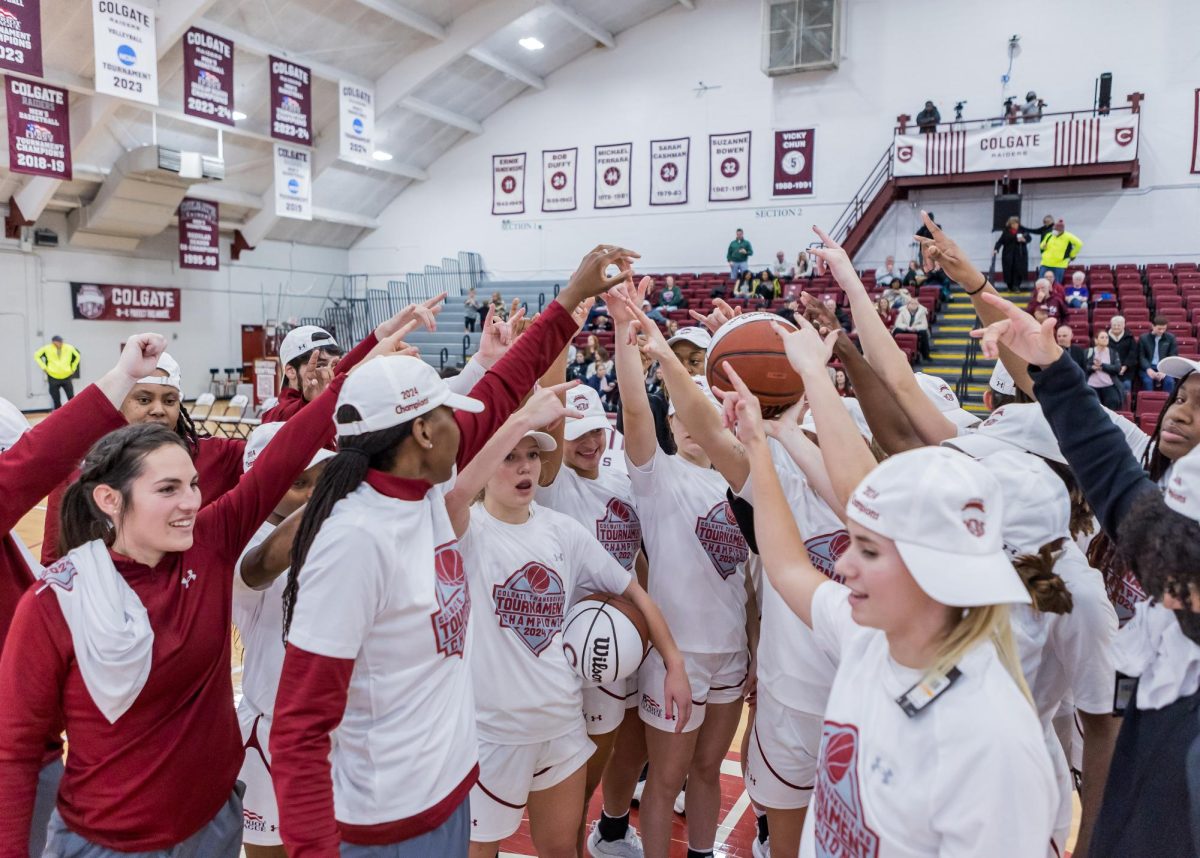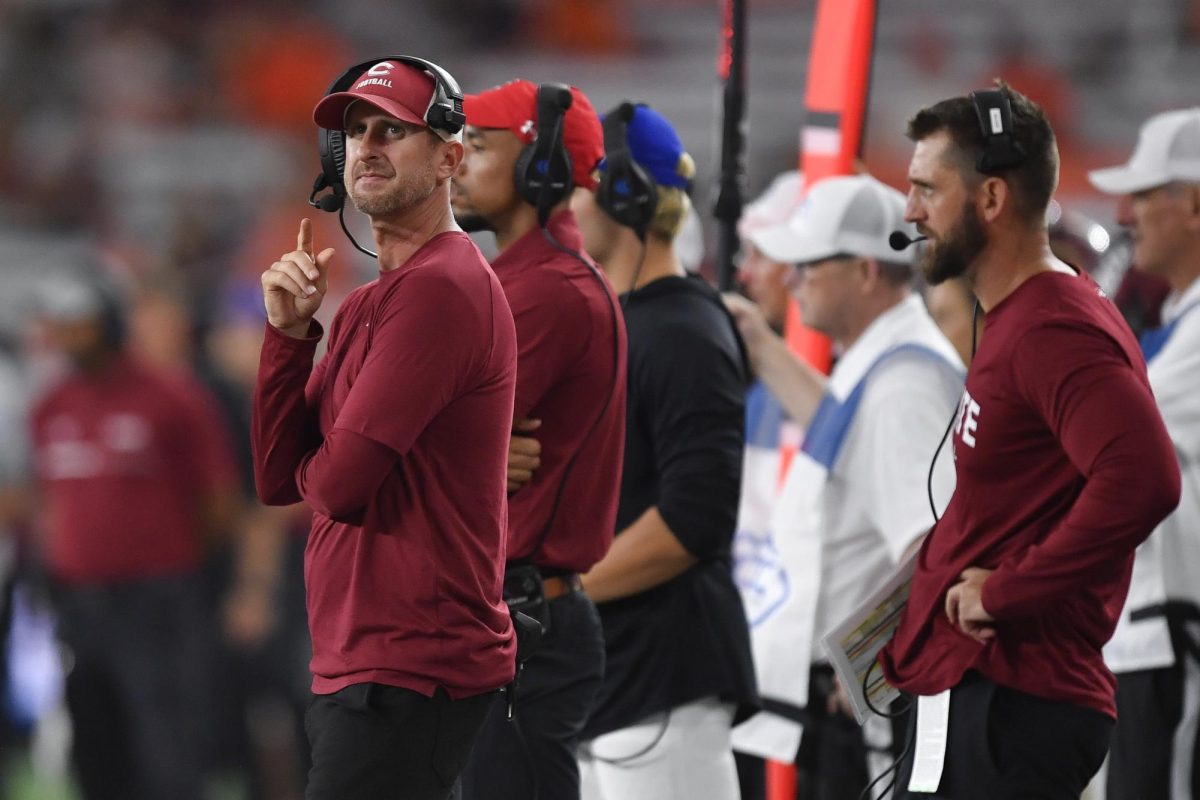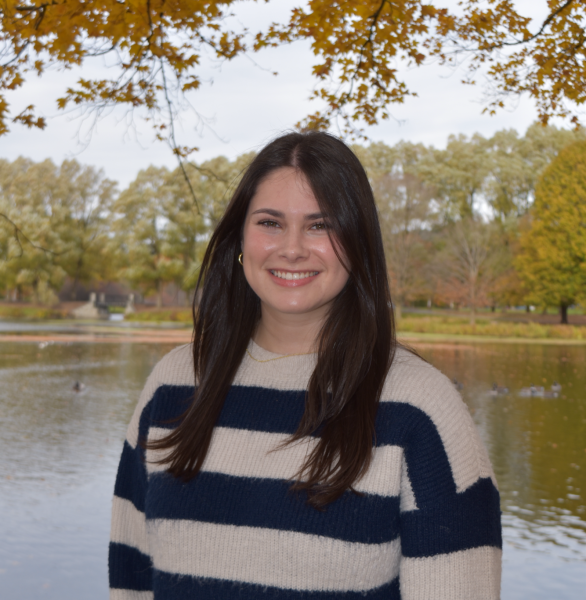Most of the Colgate University community is likely familiar with the phenomenon known as the “Colgate bubble,” which describes the geographical and mental disconnect between Colgate and the “real world.” Though one may assume that the perceived isolation of Colgate students may extend to politics, the Colgate student body has found several ways to engage with the upcoming Nov. 5 election.
Professor of Psychology Carrie Keating provides the students in her Psychology of Leadership class with an opportunity to involve themselves in national politics each presidential election cycle. For almost as long as she has taught at Colgate, Keating has assigned her students the daunting task of predicting the results of the presidential election. She challenges her students to utilize the psychological concepts they have learned in class and apply them to the presidential candidates and the success of their campaign approaches in battleground states.
“The polls are not showing us the way,” Keating said. “So we have to look at other factors — psychological factors — and draw research from psychological science to try and fit together the puzzle pieces and predict the swing states.”
For this year’s election, Keating charged her students with predicting which presidential candidate will win the electoral votes of four battleground states: Georgia, Arizona, Pennsylvania and Wisconsin.
Senior Averill McCorkle’s group was tasked with studying Georgia, a historically Republican-leaning swing state that made a significant difference in the results of the 2020 election when Democrat Joe Biden won its 16 electoral votes.
“As we have the state of Georgia, we have focused most of our energy on race, age, and the economy,” McCorkle said. “Georgia is unique in the sense that it is a historically red state, yet last election [they] turned blue, highly due to the organization within the Black community and dissatisfaction with the Trump economy.”
Regarding the upcoming election, McCorkle cites the economy as Georgian voters’ key motivator because most of its population is concentrated in the 18-24 and 60 years and older age demographics.
“These groups do not always align in how they are influenced, so it is important to look for comparisons in how they can be affected and if each candidate is working to sway each group,” McCorkle said. “Georgia is going to be a close race, so it really will come down to who is using more concepts to their advantage and which of those concepts are more powerful.”
On the other hand, senior Wolf Gordon sees the similarity among voters in his assigned state, Wisconsin, as a unique challenge.
“Wisconsin is uniquely impossible to predict because the types of people that are Democrat and Republican are so similar,” Gordon said. “Even within the same neighborhoods, you will have every other house be a Harris voter and the rest being Trump voters with no real discernible differences between them.”
Keating emphasized the importance of studying the factors that drive voters to the polls and identifying which of the candidates’ attributes incentivize people to vote for them and which deter voters.
“This election is going to come down to who shows up and who votes and who doesn’t show up,” Keating said. “That is right in the wheelhouse of psychological science, where we look at motivation. We look at personality traits of leaders and the motivation of followers.”
While analyzing the characteristics of the candidates, former President Donald Trump and Vice President Kamala Harris, groups must consider how they present themselves to the public and the image they create to best appeal to voters. In a political climate that many perceive as a time of crisis, students in Keating’s class have discussed whether or not voters would be drawn to a candidate who fits the prototype of a leader.
“On one side, we have Trump, who is as prototypical of a leader as you can get,” Gordon said. “He’s tall, he’s masculine, he’s confident, charismatic, narcissistic and borderline psychopathic, which are all traits that we want leaders to have in times of uncertainty and crisis […]. Harris is really fighting an uphill battle because she has fewer of these attributes. Being a woman alone is a huge hurdle to jump, as we all remember from [the election in] 2016.”
McCorkle corroborated Gordon’s view, arguing that Harris’ gender serves as a challenge, not only because the United States has never elected a female president, but also because of the perceived incompatibility of femininity and positions of power.
“In this election, gender is particularly important when looking at leadership psychology and applying it to the election as there is a male and female candidate,” McCorkle said. “The role congruity theory shows that women are less likely to be considered leaders because of the incongruity in our culture [between] the social role of a female and the makeup of a leader.”
Keating explained that gender plays a major role in whether the public perceives Trump and Harris as strong and capable leaders.
“In a way for [the students], it’s like a team scavenger hunt where they have to try and pick out what traits in a leader will be best read by voters in this type of political climate — in this type of psychological climate of uncertainty,” Keating said. “[Students must study] how voters will be feeling about male versus female leaders.”
Students must also study the campaign strategies of either candidate and conduct an election post-mortem, which involves analyzing which aspects of each candidate’s campaign were effective and which were not.
“Targeting young people through podcasts from both sides I think is a powerful and unique strategy that both candidates have used to their advantage,” Gordon said. “We just saw Trump on ‘The Joe Rogan Experience,’ which got over 26 million views within 24 hours. For a three-hour podcast episode, that is unheard of.”
From this project, Keating hopes that students gain valuable experience collaborating to work toward a difficult task and learn to understand the perspectives of all voters.
“[This project is] a wonderful opportunity for people to work in teams and get connected with politics, which in our department, is not everybody’s cup of tea,” Keating said. “[Students] analyze all the different various complex elements that go into a voter’s decision […]. It’s a challenge to welcome all different points of view and not be too judgy. Learning to listen to people who see things differently is a great opportunity for us.”
McCorkle enjoyed this project because it allowed her to witness the psychological phenomena of leadership she has learned about in class exhibited by presidential candidates.
“Seeing the direct correlation between occurrences and changes in the polls has allowed me to witness psychological theories at play in real-time, having a major impact,” McCorkle said. “I don’t think there are many opportunities in life to have an experience like that, where you understand how people are being influenced, maybe more than they even do, so this project has definitely made me want to take advantage of that opportunity.”















